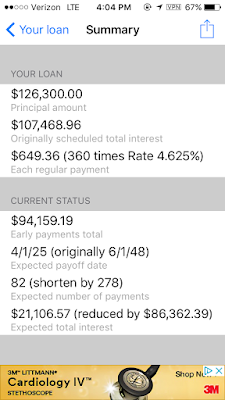 In our family devotional, we recently came to the uncomfortable
account of David and Bathsheba. No
problem, I thought, we can handle
this. My littles will tell you without missing a beat that God’s ideal for
marriage is, “one man and one woman for life.” Teaching them that David broke
this ideal would be fairly straightforward. So I thought.
In our family devotional, we recently came to the uncomfortable
account of David and Bathsheba. No
problem, I thought, we can handle
this. My littles will tell you without missing a beat that God’s ideal for
marriage is, “one man and one woman for life.” Teaching them that David broke
this ideal would be fairly straightforward. So I thought.
It turns out that I underestimated how difficult this
passage would be to explain to our children. Not because it involves teaching
preschoolers about adultery, but because it opened their eyes to a terrible
truth.
You see, David is Monkey2’s Bible hero. He gets his middle
name from three great Davids – David Richardson (Joshua’s father), David Motl
(who is like a second father to me), and King David. For several weeks now, JD
has listened intently as we read through accounts of David’s faith and
victories. What little boy isn’t inspired by the young shepherd who conquered a
giant with just a sling and the strength of his God? My second monkey has been
awestruck and deeply impressed, proudly proclaiming each night, “His name is
David, just like ME!”
When we came to the passage where David takes another man’s
wife, our young children listened with rapt attention. It wasn’t difficult to
explain what happened. They understood that a covenant had just been broken. Well, that was easy, I thought to
myself. I wasn’t prepared for the question that followed.
“Is that the same David who killed Goliath?”
JD’s face fell.
It couldn’t be. Not David. Not his hero.
I watched as it dawned on my little boy that even great men
fall. I wanted to weep. In that moment, King David’s sin with Bathsheba broke
my heart because I saw the effect it had on my son. It baffled and confused
him. It distressed him that David – his great hero of faith – could make such a
sinful choice.
Do you know what that’s like? Have you ever watched a spiritual
hero fall from their pedestal? I have. I’m sure you have, too. You’ve seen great
preachers fall into error, giants of faith fall away. You’ve heard reports of
men and women you regarded as blameless who have fallen into sexual sin.
“No, surely not so-and-so. Please don’t let it be true.”
It hurts. It’s discouraging. It’s infuriating. When someone
you’ve held up as an example of righteous living makes a sinful decision, it
can make you question your own faith and commitment to Jesus. In times like
these we need to remember that we’re not the only ones watching. Our kids are
listening, waiting to hear our reaction.
There are two things I was reminded of during our discussion
with JD. One: Sin has consequences beyond our imagination. Scandals (especially
in the Church) reach further than we can possibly see. Even centuries later,
David’s sin is still painful. It still affects the hearts and minds of
thousands of people. In light of that, we need to understand the seriousness of
our own choices. Every one of us is setting an example for someone else in our
lives. We may not be in a public role like David, but people are still looking
to us. Our actions are either leading them toward God or away from Him. The ripple
effect can last for years.
Second: Jesus.
Precious Jesus. I think for the first time it really hit JD that Jesus is the
only one without sin. Isn’t that exactly what we want our children to
understand? That’s the hope on which to focus. What an opportunity to remind
our children that, although no one is perfect, Jesus offers cleansing for all.
When David was repentant, God was able to restore a beautiful relationship with
him. He offers the same to each of us.
When someone sins, do you obsess about it for days? “I can’t
BELIEVE he did that!” “What’s wrong with them, anyway?” “I’m never going to
trust her again!” Or do you display grace and pray for repentance? Christ is
able to redeem! Drive that point home, every time.
With sorrow I watched JD realize David’s imperfection. But,
oh, the joy of pointing him to God’s forgiveness! That is truly the best part
of parenting; getting to share the love, grace, and mercy of God with my
children. Watching JD slowly transfer his greatest admiration from men to Christ
is unspeakably sweet.
Just as Joshua spent the rest of devotional teaching our
children, we know that everyone sins and falls short of the glory
of God (Romans 3:23). There is no one who is righteous on their own (Romans
3:10). And sometimes, great men fall.
I want my kids to admire the characters of the Bible as well
as modern day leaders of faith, but I want them to realize that they are just
human – just like us. I want them to think of Paul and Peter, Daniel and Ruth (and Jody and Evelyn Apple) as people to imitate, but I want them to know that they were (are) real people in
real need of a Savior, and that our greatest hero is Jesus.
When great men fall, Jesus stands. He is ready to forgive
and receive even the lowest among us. He is willing to be the strength that you
lack, if only you’ll let Him.
Will you let Christ be your Hero?







